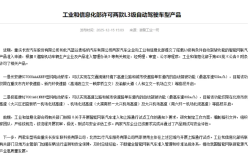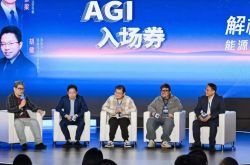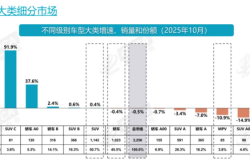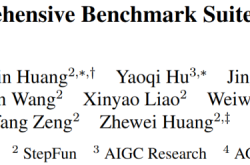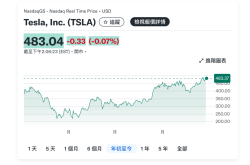Beijing Unveils a Super Hidden Champion: Leading Public Opinion Monitoring and Serving Fortune 500 Companies with AI + Marketing Services
![]() 09/02 2025
09/02 2025
![]() 528
528

Interview | Zou Wei, Pencil Road
Copywriter | Song Ge, Pencil Road
Imagine the future: Enterprises no longer need large teams but can automate brand opinion analysis, marketing content generation, and customer service responses through customized intelligent agents. From data collection to decision-making, the entire process runs efficiently. This is the new horizon of AI in brand marketing.
Qingbo Intelligence, a Beijing-based veteran in big data and brand marketing for over a decade, has emerged as a key player in the AI landscape.
Founded in 2014 by a university professor, Qingbo Intelligence initially focused on big data, providing public opinion monitoring and brand analysis services to governments, central and state-owned enterprises, and Fortune 500 companies. The company has won nearly 40 gold medals in top domestic and international AI algorithm competitions, cementing its position in B-end brand marketing intelligence.
Today, Qingbo Intelligence has evolved from early "marketing big data tools" and "public opinion management platforms" to a full-chain AI service provider encompassing "public opinion monitoring, content production, digital human IP, and customized large models".
Their core competencies are akin to a "smart butler" in brand marketing: they customize hot topic selection analysis systems for CCTV, mining topics like pensions and education from vast online data and automatically generating micro-short dramas; they create digital human IPs for Mengniu, using AI video intelligent agents to "generate scripts and finished videos with a single sentence"; they even develop gas station safety management intelligent agents for petroleum and petrochemical enterprises, combining regulations with monitoring data to build robust safety defenses.
With the explosion of generative AI, new challenges have emerged for enterprises: What if general large model data is inaccurate? Are enterprise-customized intelligent agents too costly?
"In the next ten years, AI + brand marketing will experience faster penetration than ever before." This is the prediction of Qingbo Intelligence CEO Lang Qingping. Below are highlights from the Pencil Road interview with Qingbo Intelligence:
1. Q: What was the opportunity to bet on artificial intelligence back then?
A: Artificial intelligence requires data, algorithms, and computing power. When Qingbo was founded in 2014, it was rooted in big data to create products and services, naturally encompassing algorithm research and technology development.
2. Q: How do you view the surge of generative AI at the end of 2022? What did it mean for your company?
A: It's a remarkable development. Large models significantly boost work efficiency. For instance, what ten people used to take a week to clean and label can now be done by two in half a day. Large models are also invaluable in code writing and content generation.
3. Q: In the next one or two years, what kind of differentiation will occur in the intelligent agent industry?
A: It can be divided into two categories: On the C-end, intelligent agents related to rigid or emotional needs, such as education, health consultation, text and video creation, psychological counseling, and virtual companions, will grow faster. On the B-end, it's mainly scenarios with strong rigid demands and low fault tolerance. If large models and intelligent agents can solve these issues, they will be swiftly implemented.
Those with faster resolution speeds, like brand marketing, customer service, data analysis, and code writing, will advance more rapidly. While those with higher complexity, like production lines, will require more time. If a company focuses on a vertical field like production lines, persists in deep cultivation, and has sufficient time, it can forge strong technical competitiveness.
4. Q: Which industries have seen the fastest growth in intelligent agent applications this year? Which are still hesitant?
A: We serve multiple industries, including manufacturing, automotive, consumer goods, cosmetics, petroleum and petrochemicals, telecommunications, energy, and real estate. Generally, departments like brand marketing, customer service, and big data analysis have seen the fastest adoption; frontline factories and assembly lines are relatively slower due to their stringent accuracy and safety requirements.
Disclaimer: The interviewee has confirmed the information's truthfulness and accuracy, and Pencil Road stands by its content.
- 01 -
Pencil Road: Market, public relations, and new media practitioners are familiar with Qingbo, but others may not be. Please introduce your current business focus.
Lang Qingping: Originally founded by university professors, we began market-oriented operations in 2015, primarily serving the news dissemination and brand marketing needs of enterprises and governments, leveraging big data and artificial intelligence.
Currently, our clients include brand marketing departments of Fortune 500 companies, central and state-owned enterprises, and listed companies, as well as government propaganda departments, central and provincial media, universities, research institutions, and investment institutions. As long as it involves internet content production and dissemination, brand image and reputation monitoring, hot event analysis, competitive research, etc., our services may be utilized.
Our products encompass public opinion monitoring and analysis, new media content production and review, communication effect evaluation, new media management evaluation systems, converged media operating systems, digital human IP creation, large model-based brand marketing intelligent agents, and customer service intelligent agents, among others.

Lang Qingping, CEO of Qingbo Intelligence
Pencil Road: What are the key milestones in these 10 years?
Lang Qingping: In 2015, we launched our first internet-based product, akin to a search engine, aiding users in news dissemination and brand marketing by identifying influential accounts across various platforms, classified by region and industry, and assessing their new media matrix's communication power.
In 2016, we introduced a public opinion analysis system to assist enterprises and governments in analyzing brand communication and public opinion based on mobile internet communication characteristics.
In 2017, we rolled out a new media management evaluation system to support the operation and effect evaluation of governments' and enterprises' new media matrices.
In 2018, we also launched a converged media big data analysis platform, encompassing hot spot discovery, content production, channel selection, and effect evaluation, forming a full-chain technical service.
In recent years, with the rise of digital humans and large models, we have introduced a digital human platform and various intelligent agents, such as brand intelligent agents, video intelligent agents, marketing intelligent agents, and customer service intelligent agents. As early as 2018 and 2019, we participated in numerous top domestic and international AI algorithm competitions, like Google's global AI question and answer competition, patent text algorithm competition, and the Chinese Academy of Sciences' fake news identification competition, winning nearly 40 first places and gold medals. Before the advent of large models like ChatGPT, we were already deeply engaged in AI basic algorithms and data analysis.
Pencil Road: What was the opportunity to bet on artificial intelligence back then?
Lang Qingping: Artificial intelligence necessitates data, algorithms, and computing power. When Qingbo was founded in 2014, it was founded on big data to create products and services, inherently including algorithm research and technology development.
Pencil Road: How do you view the surge of generative AI at the end of 2022? What did it mean for your company?
Lang Qingping: It's a game-changer. Large models vastly enhance work efficiency. For example, the amount of data ten people used to spend a week cleaning and labeling can now be done by two in half a day. Large models are also invaluable in code writing and content generation.
Of course, there are issues, such as inaccurate data and prone-to-error generated content. However, most of our clients are Fortune 500 companies, central and state-owned enterprises, and listed companies with stringent accuracy requirements. We don't directly use general large models but customize exclusive large models and intelligent agents by integrating our data and algorithmic advantages.
Pencil Road: Can you share some specific customer cases of your AI products?
Lang Qingping: We provide CCTV programs with big data-based hot topic selections across the network, covering areas like pensions, artificial intelligence, automobiles, and education. Leveraging video intelligent agents and large model tools, it not only screens the hottest public concern topics but also automatically generates articles, posters, and videos, producing highly communicative micro-short dramas and promotional videos.
For instance, we created a digital human image for Mengniu and used AI to generate nutritional science videos. The video intelligent agent can automatically generate creativity, scripts, storyboards, and finished videos based on a single sentence, drastically improving content production efficiency.
Moreover, we conduct brand image analysis, communication effect evaluation, and user reputation research for leading enterprises in the real estate, automotive, consumer goods, energy, and internet industries.
Pencil Road: How has the development of digital humans been in the past two years?
Lang Qingping: Digital human growth has been relatively stable over the past two years. In the past, due to the lack of large model support, the question and answer system behind digital humans wasn't intelligent enough. Now with large models, intelligence has significantly improved, broadening their application scope. Whether in government services, enterprise services, or education, digital humans can play a role, and enterprises are more inclined to interact through them.
Pencil Road: Many companies are making digital humans. What are your advantages?
Lang Qingping: Since 2015, we've been doing enterprise brand marketing based on big data. The digital human is merely the external form; the real core lies in the big data and intelligent capabilities behind it. Compared to companies focusing on appearance and movements, our advantage is in data and content.
We prioritize what digital humans "say," how to identify user messages, and achieving precise, personalized responses through big data analysis. For example, the esophageal health intelligent agent we developed for medical institutions can change the digital human's image, but the data and model behind it are the core.
Essentially, we're still a data-driven AI company. Other AI companies also need data, but we've focused on the brand marketing field for years, leveraging big data advantages.
Pencil Road: Has the company's revenue structure changed in recent years?
Lang Qingping: In terms of brand marketing and big data analysis services for enterprises, we've maintained an annual growth rate of about 10% to 20%. Although the customized large model and intelligent agent business is relatively new, its annual growth rate is above 80%, primarily due to the small base, hence the rapid growth.
- 02 -
Pencil Road: Compared to last year, what changes have occurred in the market this year?
Lang Qingping: Providing big data decision support for brand marketing remains a rigid enterprise demand. Many enterprises didn't understand large models and intelligent agents last year and were unsure of their benefits. This year, more institutions and enterprises are gradually realizing that large models can enhance quality and efficiency in various business departments, leading to increasing demand.
Pencil Road: How do the intelligent agents provided by Qingbo Intelligence differ from those of other companies?
Lang Qingping: For example, we developed an esophageal health science popularization intelligent agent for Tongji Hospital; launched a social science popularization intelligent agent for the Guangxi Federation of Social Sciences; and are developing a gas station safety management intelligent agent for petroleum and petrochemical enterprises, integrating their safety regulations and monitoring data to create customized large models and intelligent agents.
Our characteristics are as follows:
First, we're familiar with the strengths and weaknesses of many large models on the market and can select the optimal base model according to project requirements;
Second, we have algorithmic advantages. With numerous top domestic and international awards under our belt, we can combine internet open-source data and internal enterprise data for customized research and development;
Third, we've accumulated massive amounts of data over a long period, which we can uniquely process and accurately label. Combined with algorithm training, we can create models and intelligent agents that better meet customer needs.
Combining these factors, along with cost-effectiveness and a deep understanding of customer needs, users choose us.
Pencil Road: Many enterprises now know about intelligent agents but are unsure how to choose them. What are the differences between large enterprises and small and medium-sized enterprises in their choices?
Lang Qingping: The applicability of intelligent agents varies greatly depending on the industry and specific demand. For instance, content production enterprises have a high degree of fault tolerance, merely requiring large models for article writing and video generation, thus general intelligent agents suffice. However, the manufacturing industry presents a different scenario.
In steel plants and coal mines, where 100% accuracy and safety are paramount at every stage of the process, fault tolerance is extremely low. These enterprises necessitate rigorous customized development.
Even within the same manufacturing enterprise, the needs of different departments can differ significantly. For example, the party building and propaganda department may only require AI for video generation, making a general model adequate. However, if the promotional video needs to incorporate the enterprise logo, leader image, office building, and specific products, special model binding and training are necessary to ensure no deformation occurs.
Pencil Road: Which industries have witnessed the most rapid growth in the application of intelligent agents this year? And which are still hesitant?
Lang Qingping: We have served various industries, including manufacturing, automotive, consumer goods, cosmetics, petroleum and petrochemicals, telecommunications, energy, and real estate. Generally, departments such as brand marketing, customer service, and big data analysis have seen the fastest adoption. Frontline factories and assembly lines, however, have been relatively slower due to their stringent requirements for accuracy and safety.
For instance, we provided services to an energy enterprise where their brand and customer service departments adopted intelligent agents swiftly, but the application in frontline production lines was much more cautious.
Pencil Road: If frontline production gradually adopts intelligent agents in the future, what challenges will they encounter?
Lang Qingping: Take our ongoing project with a large petroleum and petrochemical enterprise to develop a safety management intelligent agent for gas stations across the province as an example. This involves multimodal data, encompassing regulatory texts, sensor monitoring data, and camera videos.
Before using these data to train models and develop intelligent agents that meet safety management requirements, we need to structurally process, clean, and govern these different types of data.
This process tests our long-accumulated data governance and analysis capabilities, which are Qingbo Intelligence's strengths. Despite the novelty of large models and intelligent agents, we possess deep underlying data accumulations that many startups lack.
Pencil Road: In the next one or two years, what kind of differentiation will emerge in the intelligent agent industry?
Lang Qingping: It can be broadly divided into two categories:
On the consumer side (C-end), intelligent agents related to rigid or emotional needs, such as education, health consultation, text and video creation, psychological counseling, and virtual companions, will develop faster.
On the business side (B-end), it will primarily focus on scenarios with strong rigid demands and low fault tolerance. If large models and intelligent agents can effectively address these issues, they will be rapidly implemented.
Those applications that offer faster resolution, like brand marketing, customer service, data analysis, and code writing, will advance more quickly. On the other hand, more complex scenarios, such as production lines, will require more time. Companies specializing in a vertical field's production line, with persistence in deep cultivation and sufficient time, can develop strong technical competitiveness.
Pencil Road: If large enterprises also enter this field, what are your differentiated advantages?
Lang Qingping: Large enterprises primarily focus on the consumer side (C-end), while Qingbo Intelligence concentrates on the business side (B-end). We maintain close cooperative relationships with Tencent, Huawei, Alibaba, JD.com, Baidu, and ByteDance.
They generally focus on general large models for the C-end and the foundation of some industry-specific large models. In contrast, we are at the forefront of the B-end market, developing large model and intelligent agent landing applications for enterprises. Behind this, large enterprises provide model bases and computing power support.
Due to their inherent characteristics and input-output ratios, large enterprises are not well-suited for B-end intelligent agent applications and lack relevant experience. We have a symbiotic relationship with them: they provide basic capabilities, and we handle the implementation for enterprises.
Pencil Road: Therefore, in terms of understanding industrial needs and implementation experience, you differ from large enterprises. Are there also cost factors involved?
Lang Qingping: Indeed. Considering cost and cost-effectiveness, large enterprises are gradually shrinking in the B-end and government (G-end) markets. They have realized that they are not adept at B-end operations and often incur losses. Now, they hope that B-end enterprises like us can take the lead, with them providing computing power and models, while we are responsible for product integration and implementation.
Their assessment has also shifted, focusing more on the sales and profits of their own products rather than providing overall solutions. As a result, our cooperation with large enterprises has become smoother: we take charge of the B-end market, and they provide support behind the scenes.
For instance, last year we collaborated with Baidu Intelligent Cloud to launch an AI public opinion analysis product. We provided public opinion data, while Baidu offered computing power and large model inference services, and together we launched it to users.
Our cooperation with Huoshan Cloud follows a similar model. We are responsible for digital human and big data analysis services, applied in industries such as automobile manufacturers and consumer goods. Huoshan Cloud provides computing power and cloud services, and we lead the engineering development. Our relationship with large enterprises is essentially one of complementary cooperation.
This article does not constitute any investment advice.


